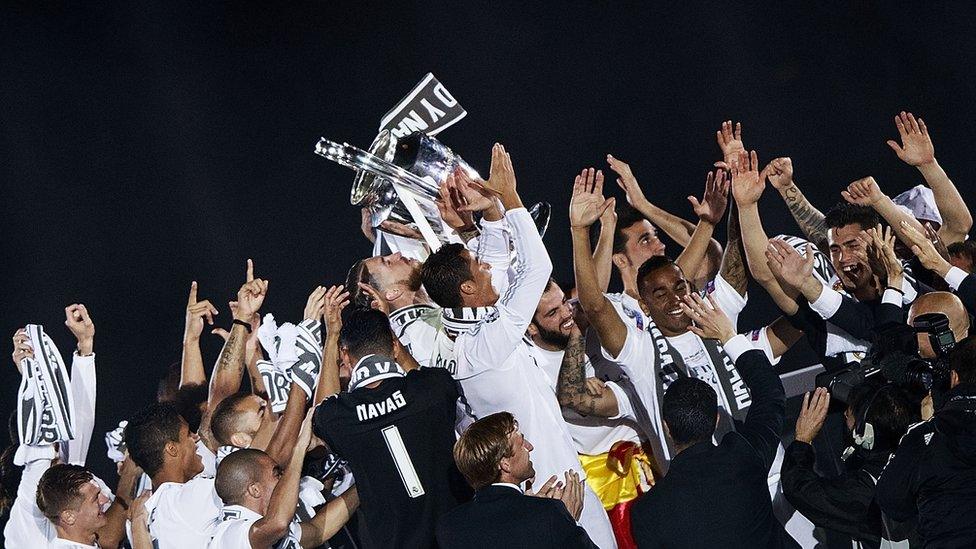Real Madrid among Spain clubs ordered to repay state aid
- Published

Real Madrid is fresh from winning the 2016 UEFA Champions' League and is the richest team in the world
Seven football clubs in Spain have been ordered to repay millions of euros of state aid.
The European Commission ruled that preferential loans to the clubs and deals on tax and property constituted illegal government help under EU rules.
Real Madrid, the world's richest club and European champion, was ordered to repay more than €20m (£17m) in total.
Separately, the commission cleared five Dutch football clubs of receiving unfair financial support.
EU Competition Commissioner Margrethe Vestager said the seven Spanish teams had unfairly benefited from taxpayers' money.
She said professional football "must comply with fair competition rules", adding: "The subsidies we investigated in these cases did not."
Four clubs including Real Madrid were charged a lower corporation tax rate normally applicable to non-profit organisations, rather than being treated as commercial companies, for more than 20 years.
Under EU law, governments may not distort competition through their provision of state aid to commercial enterprises.
The investigation also concluded:
Real Madrid must repay €18.4m (£15.4m) it received from the city council as compensation for a land transfer that fell through
Real Madrid, Barcelona, Athletic Bilbao and Osasuna paid 25% tax rather than 30% for more than two decades, and must each pay back up to €5m (£4.2m)
Valencia was given a loan guarantee by a state-owned credit institution and has been ordered to pay back €20.4m (£17.1m)
Hercules, a second-division club, benefited from a similar loan guarantee and must pay back €6.1m (£5.1m)
Elche, another second-division team, also benefited from a similar guarantee and must pay back €3.7m (£.1m)
Separately, the commission investigated aid the Dutch government provided to FC Den Bosch, MVV Maastricht, NEC Nijmegen, Willem II Tilburg and PSV Eindhoven but said it complied with European rules.